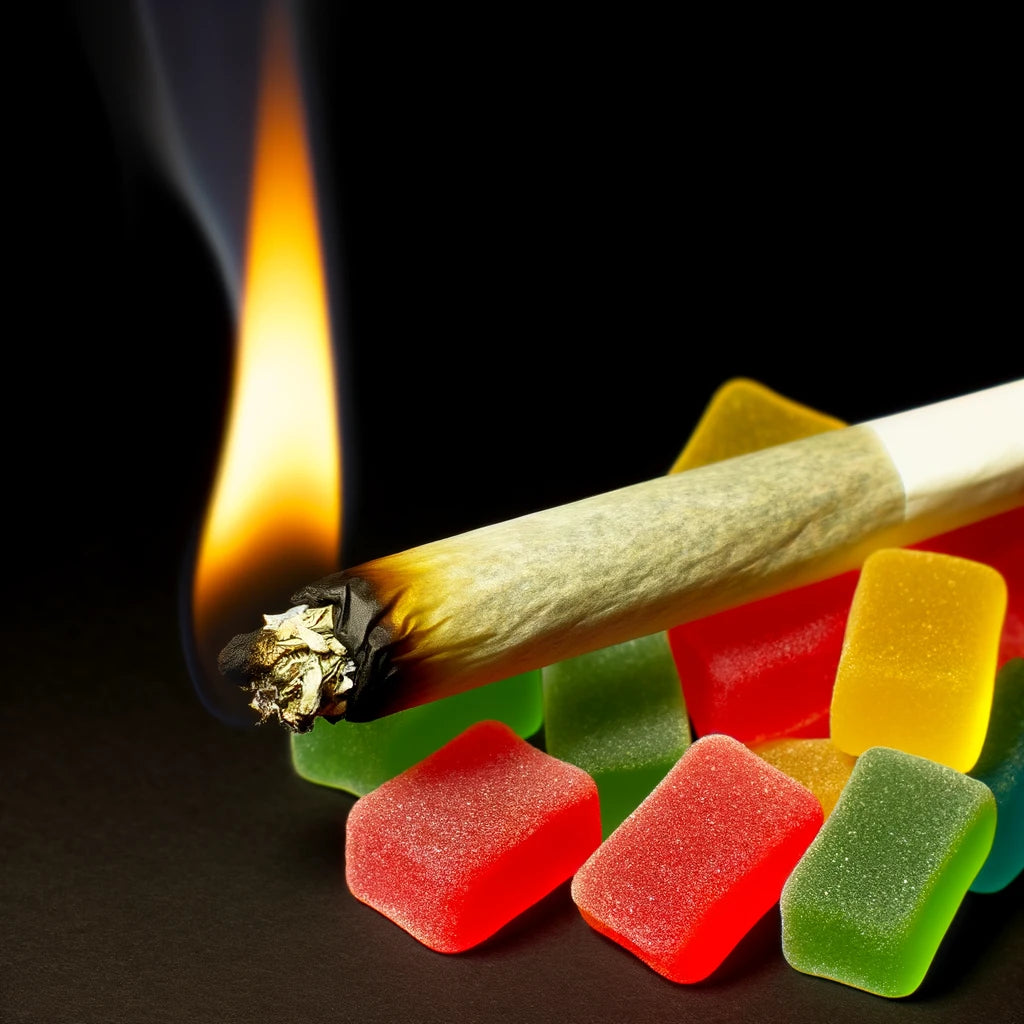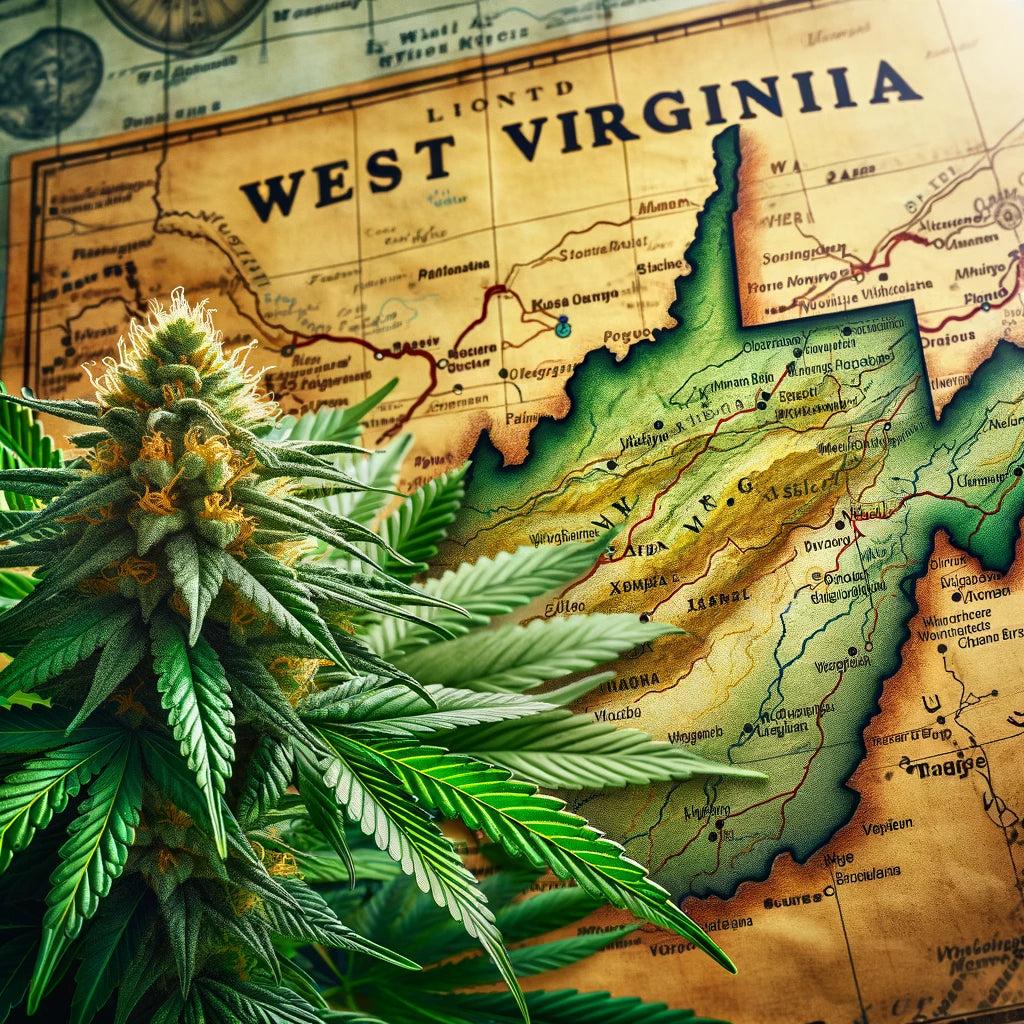The evolving landscape of cannabis consumption has introduced a myriad of ways to enjoy the plant's benefits, with THC gummies and smoking being two prominent methods. Each method carries its own set of advantages, drawbacks, and considerations. This article delves into the health risks, legal implications, metabolic differences, environmental impacts, and cost considerations of consuming THC through gummies versus smoking or vaping, providing a comprehensive understanding of each consumption method.
How do the health risks of vaping THC compare to those of smoking it?
Respiratory Effects of Vaping vs. Smoking THC
Vaping THC is often perceived as a healthier alternative to smoking because it eliminates the combustion process, thereby reducing the inhalation of carcinogens and toxic particles. However, vaping is not without its respiratory risks. The high temperatures required to vaporize cannabis can produce harmful chemicals, including formaldehyde, especially in poorly manufactured devices. Conversely, smoking cannabis directly combusts the plant material, releasing a wider array of carcinogens and tar, which can lead to respiratory issues over time.
Long-term Health Risks of Vaping and Smoking THC
Both vaping and smoking THC are associated with long-term health risks, although the full extent of vaping's effects are still under investigation. Smoking THC is linked to chronic bronchitis and changes in lung function, but a definitive connection to lung cancer remains unproven. Vaping, while newer on the scene, has been associated with EVALI (e-cigarette or vaping product use-associated lung injury), highlighting the need for more research into its long-term effects.
What are the legal implications of using THC gummies versus smoking or vaping THC in regions where cannabis is regulated?
Legal Status of THC Gummies vs. Smoking/Vaping Products
The legality of THC products varies significantly by jurisdiction, with some areas allowing medical cannabis, others permitting recreational use, and still others imposing complete bans. Generally, the legal status of THC gummies versus smoking or vaping materials is governed by the same laws, but enforcement can differ. Some regions specifically regulate edible products due to their appeal to minors and potential for accidental ingestion.
Penalties and Enforcement Differences for Edibles vs. Inhalables
Penalties for possession or use of THC products often depend on the form of the product and the amount. In some places, edibles may be subject to stricter regulations and penalties due to their discrete nature and higher potency options. Law enforcement practices may also vary, with edibles sometimes more difficult to detect than traditional smoking or vaping products.
How does the body metabolize THC differently when ingested as a gummy compared to when it is inhaled?
Metabolic Pathways for Ingested vs. Inhaled THC
When THC is ingested in the form of gummies, it passes through the digestive system and is metabolized by the liver before entering the bloodstream. This process transforms THC into 11-hydroxy-THC, a more potent form of the cannabinoid, leading to a more intense and longer-lasting effect. In contrast, inhaled THC enters the bloodstream directly through the lungs, bypassing the liver, resulting in a quicker onset but shorter duration of effects.
Onset and Duration of Effects: Edibles vs. Smoking/Vaping
The onset of effects from THC gummies can take anywhere from 30 minutes to 2 hours, with the duration lasting up to 12 hours. Smoking or vaping THC produces effects almost immediately, typically peaking within 10 to 30 minutes and diminishing after 2 to 3 hours. This difference is crucial for users to understand to avoid overconsumption and unwanted side effects.
What are the environmental impacts of producing THC gummies versus the cultivation and consumption methods associated with smoking or vaping?
Environmental Footprint of Edible Production vs. Cannabis Cultivation
The production of THC gummies involves not only the cultivation of cannabis but also the manufacturing and packaging of the edibles, which can increase the environmental footprint. Ingredients, packaging materials, and the energy required for production contribute to this impact. In comparison, the cultivation of cannabis for smoking or vaping also has significant environmental effects, including water usage, pesticide application, and carbon dioxide emissions from indoor growing operations.
Waste and Sustainability Concerns in Cannabis Product Manufacturing
Both THC gummies and inhalable cannabis products raise concerns regarding waste and sustainability. The single-use nature of vape cartridges and the packaging of edibles contribute to plastic waste. Sustainable cultivation and production practices, along with responsible consumer behavior, are essential for minimizing the environmental impact of these products.
Can the effects of THC gummies be more unpredictable than those of smoking or vaping due to factors like individual metabolism and digestive health?
Variability in Absorption and Effects of THC Edibles
The effects of THC gummies can be more unpredictable due to the complex way the body metabolizes ingested cannabinoids. Factors such as the individual's metabolism, the presence of food in the stomach, and the specific formulation of the edible can all influence the onset, intensity, and duration of the high. This variability requires users to approach edibles with caution, starting with low doses and waiting to understand their effects.
Influence of Metabolism and Digestive System on Edible Potency
Individual differences in metabolism and digestive health can significantly affect the potency and experience of THC gummies. For example, people with faster metabolisms may experience quicker onset times, while those with slower metabolisms or gastrointestinal issues may find the effects are delayed or diminished. Understanding one's body and starting with low doses can help mitigate these unpredictable effects.
How do the costs of regular use of THC gummies compare to the costs of smoking or vaping THC over time?
Price Comparison: Edibles vs. Smoking/Vaping Supplies
The cost of using THC gummies versus smoking or vaping can vary widely depending on the region, product quality, and frequency of use. Edibles often have a higher price point due to the manufacturing process and packaging, while the initial investment in vaping equipment or smoking accessories can also add up. Over time, the cost-effectiveness of each method will depend on individual consumption habits.
Cost-Effectiveness and Consumption Rates of THC Gummies vs. Inhalable Forms
For occasional users, THC gummies may offer a cost-effective option due to their longer-lasting effects and precise dosing. Regular users of cannabis, however, might find smoking or vaping to be more economical, especially if they invest in reusable devices and purchase cannabis in bulk. Ultimately, the choice between gummies, smoking, or vaping will depend on personal preferences, desired effects, and budget considerations.
In conclusion, the decision between consuming THC through gummies or smoking/vaping involves a complex interplay of health risks, legal considerations, metabolic differences, environmental impacts, and cost. Users should weigh these factors based on their individual needs, preferences, and the legal framework of their region, while always prioritizing safety and responsible consumption.



